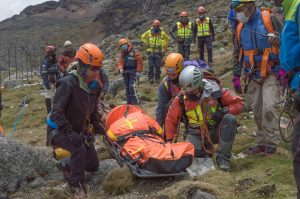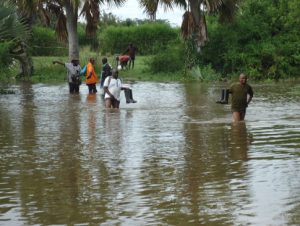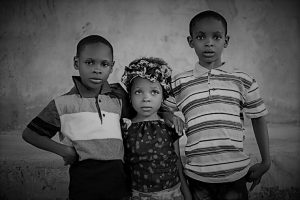Since 2017, inhabitants in Djugu’s region, Ituri’s province, in the north-east of the Democratic Republic of Congo (DRC), have been plagued by overwhelming violence as communal conflicts fueled the return of an armed conflict. Between November 12 and November 28, 2021, four incidents of exceptional brutality rocked the towns of Luko, Tché, Ivo, Drodro, and Paroisse. The humanitarian and security situation at IDP camps in the area has worsened as a result of the recent escalation of conflict, increasing people’s vulnerability and isolation.
“I’ve been left to my own devices.” Suzanne, a 52-year-old farmer from Dhedja who fled to Ivo with her three children, says, “Without food, my children and I have been sick since we arrived at the site.” She has been forced to evacuate for the second time, this time to the Rhoe displaced people’s camp. As she escaped with her family from Ivo, she witnessed passers-by being shot at and heard her neighbors being attacked with machetes. As she strives to care for her children with few hopes for the future, pictures of her neighbors being massacred play over and over in her thoughts.
More than 40,000 individuals, including Suzanne, have been forced to seek sanctuary at the Rhoe camp in the Blukwa State health region, which is difficult to access and where humanitarian organizations have a decreased presence owing to frequent security issues. “People have been experiencing numerous challenges, including the cold, a lack of shelter, and latrines. Dr. Benjamin Safari of Médecins Sans Frontières (MSF) in Drodro said that clashes between armed groups have resulted in a large displacement of people, including health personnel who are no longer by their patients’ bedside. “The health-care requirements are huge. Dr. Safari says, “We have initiated many activities to strengthen our response, particularly for youngsters under the age of 15.”
The camp’s clinic was originally designed to refer patients who needed more intensive care to the better-equipped main referral hospital in Drodro. Following the most recent skirmishes, which devastated portions of Drodro and moved residents into the Rhoe camp, MSF teams converted the clinic into a field hospital to assist the now-over 65,000 people — an increase of 40,000 people in just two months.
In the last four weeks, MSF teams have performed an average of over 800 consultations per week, assisted with 35 deliveries, and treated a number of patients who required mental health treatment. Furthermore, MSF health promotion teams held health awareness classes at the location with the goal of detecting cases of acute malnutrition, diseases with epidemic potential, and providing information on support services for prospective sexual violence victims.
“Although some people are beginning to return to their houses, the needs remain high and our access to individuals is constrained,” says Davide Occhipinti, MSF’s Drodro project coordinator.
“If it is not safe for the healthcare professionals, we will not be able to follow up with these patients to Drodro,” he explains. “Those who stay in Rhoe have no place to go.”
The communities fighting in the area have been neglected for far too long, and bandages and medicines will not address their problems. According to Occhipinti, “the Congolese state and its international partners must take responsibility for reversing the dynamics of this vicious loop that leads to more and more fatalities, injuries, and displacement.”
For more regarding the humanitarian situation in Democratic Republic of Congo (DRC), stay tuned by subscribing to our newsletter for daily updates.







